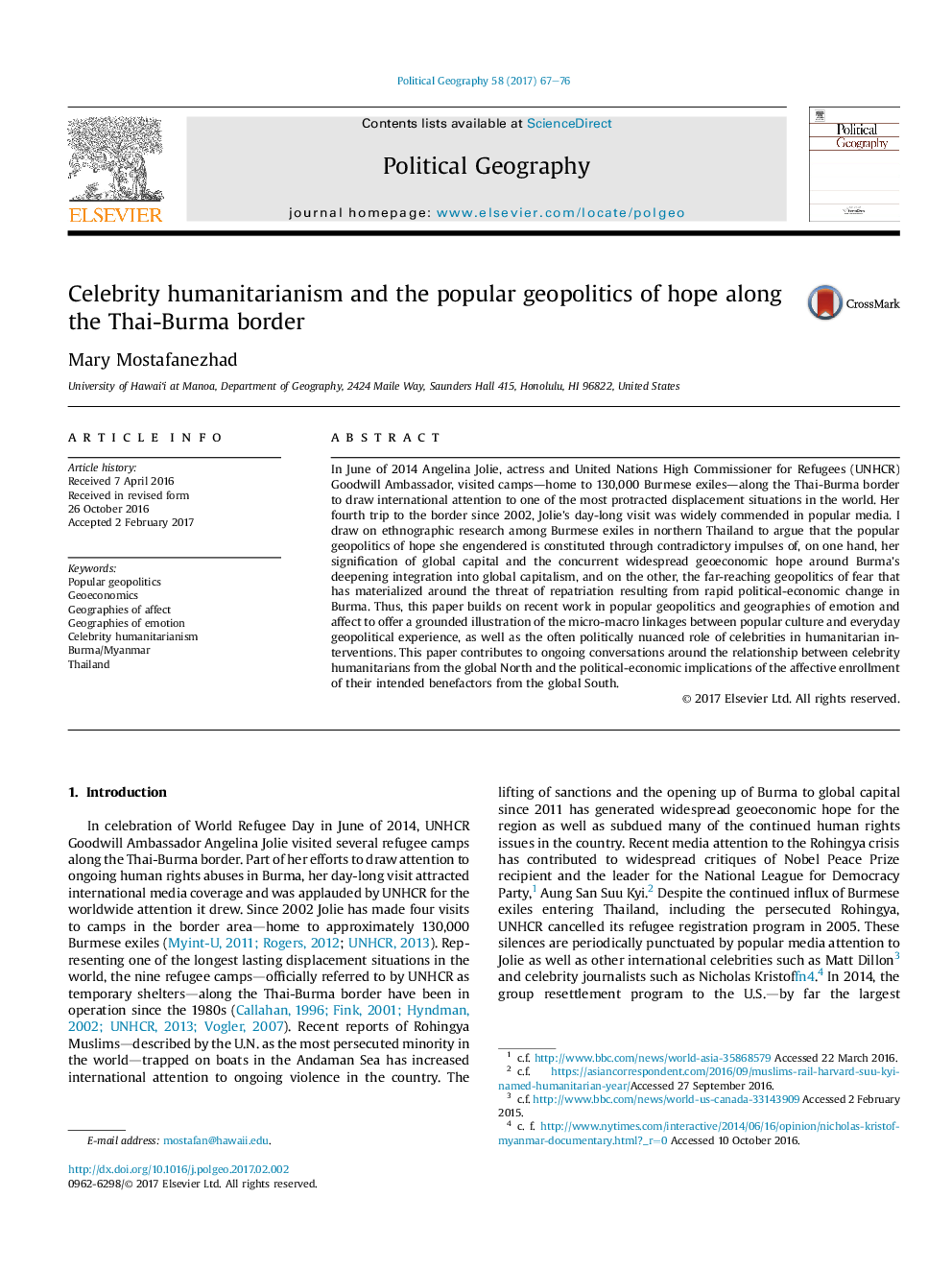ترجمه فارسی عنوان مقاله
بشردوستانه مشهور و ژئوپلیتیک محبوب در امتداد مرز تایلند و برمه
عنوان انگلیسی
Celebrity humanitarianism and the popular geopolitics of hope along the Thai-Burma border
| کد مقاله | سال انتشار | تعداد صفحات مقاله انگلیسی |
|---|---|---|
| 94215 | 2017 | 10 صفحه PDF |
منبع

Publisher : Elsevier - Science Direct (الزویر - ساینس دایرکت)
Journal : Political Geography, Volume 58, May 2017, Pages 67-76
ترجمه کلمات کلیدی
ژئوپلیتیک محبوب، اقتصاد جغرافیایی، جغرافیایی تاثیر می گذارد، جغرافیای احساسات، بشردوستانه مشهور، برمه / میانمار، تایلند،
کلمات کلیدی انگلیسی
Popular geopolitics; Geoeconomics; Geographies of affect; Geographies of emotion; Celebrity humanitarianism; Burma/Myanmar; Thailand;

